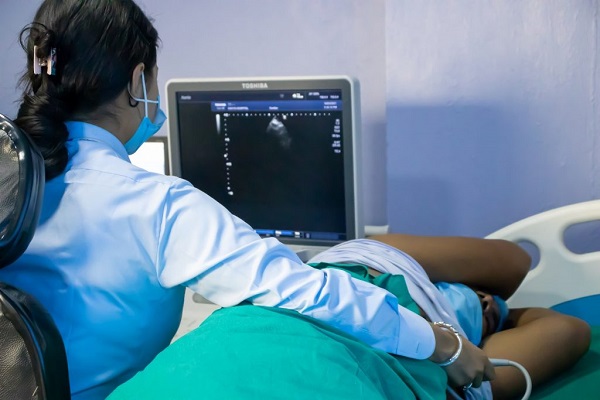Coronary Heart Disease: Coronary Heart Disease is also called Coronary Artery Disease. It develops inpatient when his/her major blood vessel that supply to the heart become damaged or seized.
If it is not cared for, then it may be lead the patients to heart attacks. It is the most common type of disease in the United States. As per the sources, more than 400.000 in the U.S.A died every year from this disease.
Causes
Coronary heart disease (CHD) is usually caused by a build-up of fatty deposits (atheroma) on the walls of the arteries around the heart (coronary arteries).
You may have the chances of suffering from this disease if you:
- Excessive smoking
- Patient of HBP
- Having High Cholesterol
- Irregular Exercise
- Suffering from Diabetes
- Obesity
Signs & Symptoms
- Angina
- Neck Pain
- Dizziness
- Headache
- Neck pain
- Shortness of Breath
- Pain in the Arm/Shoulders
- Back Pain
- Cold sweats
- Sleep Disturbances
- Vomiting
Medications & Treatment:
It is quite important to reduce a risk factor to save you from this disease. However, there is no cure for the disease.
You can manage the condition by living a healthy lifestyle; quit smoking, healthy foods, regular exercise.
If you feel something complicated, you can contact your nearest Cardiologist who helps you a lot through their medical procedures which are Electrocardiogram, CT Scans, Stress Test, and Holter Monitor.
Arrhythmia: An Arrhythmia is an irregular heartbeat. If a person undergoes this disease; then his/her heart may/might may beat too slowly, quickly, too early, or with an irregular rhythm.
There are several kinds of Arrhythmia. Most arrhythmias are not chronic and do not cause complications. However, some may have the risks of cardiac arrest or stroke.
Causes of Arrhythmia:
An irregular heartbeat or Arrhythmia caused due to several reasons. Here are several factors that can cause Arrhythmia
- Excessive Alcohol Consumption
- Diabetes
- Substance Disorder
- Too much coffee
- High Blood Pressure
- Smoking
- Some regular medicines
- Stress
- Overactive Thyroid Gland
Signs & Symptoms:
- Fatigue & Weakness
- Dizziness
- Fainting
- Heartbeat
- Chest pain
- Cardiac arrest
- Palpitations
Atherosclerosis: Atherosclerosis is hardening and narrowing the arteries. Arteries are the blood vessels that carry oxygen and nutrients from yore to your entire body.
As your age, growing fats, cholesterol, and calcium collect in your arteries, forming plaque. When plaque formed, it makes it difficult for blood to flow through your arteries. As a result, it may affect your heart, legs, and kidneys.
Causes:
Atherosclerosis causes due to several reason. Here are some of the causes that can affect the patient.
- High Cholesterol
- High Blood Pressure
- Smoking and other sources of Tobacco
- Inflammation
- Insulin resistance
- Diabetes
- Obesity
Signs & Symptom’s
- Unusual heartbeat
- Shortness of breath
- Pressure in upper body, neck, arms, chest, and jaw
- Severe headache
- Trouble seeing from eyes
- Leg pain
- Numbness
- Kidney Failure
Treatment:
Here are some procedures and treatments of Atherosclerosis:
- Angioplasty and stent placement
- Endarterectomy
- Fibrinolytic therapy
- Coronary artery bypass surgery
Besides this here are some Prevention methods:
- Eating healthy foods
- Regular Exercise
- Balancing a weight
- Regular checking and maintaining a healthy blood pressure
- Maintaining a blood sugar level.
Atrial Fibrillation
Atrial Fibrillation is a rapid heart rate that can increase strokes, heart failure, and other complications related to the heart.
In this disease, the two upper chambers of the heart are affected. This disrupts the flow of blood to the lower chambers and other parts of the body.
If it is untreated, then the patient can be lost his/her life too.
Causes:
Here are the possible causes of Atrial Fibrillation:
- High blood pressure
- Heart attack
- Coronary artery disease
- Abnormal heart valves
- Heart defects you’re born with (congenital)
- An overactive thyroid gland or other metabolic imbalance
- Exposure to stimulants, such as medications, caffeine, tobacco, or alcohol
- Sick sinus syndrome — improper functioning of the heart’s natural pacemaker
- Lung diseases
- Previous heart surgery
- Viral infections
- Stress due to surgery, pneumonia, or other illnesses
Signs & Symptoms:
- Weakness
- Chest pain
- Dizziness
- Shortness of Breath
- Fatigue when exercising
- Confusion or memory loss
- Irregular Heartbeat
Treatment and Medications:
If you have some symptoms regarding this you have to go for some treatment and medications as mentioned by the cardiologist
- Beta-blockers to decrease your heart rate
- The calcium channel to relax your muscles and manages your overall heart rate
- Sodium or potassium channel blockers to control the rhythm of the heart
- Blood thinners to prevent blood clot.

